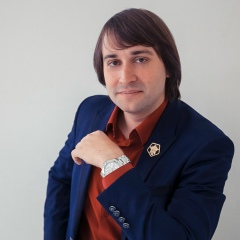Цель клятвы Гиппократа - защитить больного
Начнем с того, что так называемая "клятва Гиппократа" вовсе не принадлежит Гиппократу. Когда он умер в 377 г. до н.э., такой клятвы не было и в помине. Как и многое другое, ему приписали эту клятву в позднейших изданиях его трудов - наверное, чтобы придать им дополнительный вес. Да и сам текст понимается в наши дни неверно. Большее внимание в нем уделяется не врачебной тайне и заботе о больном, а защите знаний и интересов самих врачей ("Я передам свои знания медицины только моим сыновьям, сыновьям моих учителей и официально зарегистрированным студентам, а больше никому"). То есть недвусмысленно обнаруживается намерение по возможности сократить число врачей-конкурентов. А также упоминается, что врач должен бесплатно оказывать помощь коллегам-врачам и их семьям, но не всем подряд.
Начнем с того, что так называемая "клятва Гиппократа" вовсе не принадлежит Гиппократу. Когда он умер в 377 г. до н.э., такой клятвы не было и в помине. Как и многое другое, ему приписали эту клятву в позднейших изданиях его трудов - наверное, чтобы придать им дополнительный вес. Да и сам текст понимается в наши дни неверно. Большее внимание в нем уделяется не врачебной тайне и заботе о больном, а защите знаний и интересов самих врачей ("Я передам свои знания медицины только моим сыновьям, сыновьям моих учителей и официально зарегистрированным студентам, а больше никому"). То есть недвусмысленно обнаруживается намерение по возможности сократить число врачей-конкурентов. А также упоминается, что врач должен бесплатно оказывать помощь коллегам-врачам и их семьям, но не всем подряд.
The purpose of the Hippocratic oath is to protect the patient
To begin with, the so-called "Hippocratic oath" does not belong to Hippocrates at all. When he died in 377 BC, there was no such oath. Like so much more, he was credited with this oath in later editions of his works - probably to give them extra weight. And the text itself is misunderstood these days. It pays more attention not to medical confidentiality and care for the patient, but to the protection of the knowledge and interests of the doctors themselves ("I will transfer my knowledge of medicine only to my sons, the sons of my teachers and officially registered students, and to no one else"). That is, the intention to reduce the number of competing doctors is unequivocally revealed. It is also mentioned that the doctor should provide free assistance to fellow doctors and their families, but not to everyone.
To begin with, the so-called "Hippocratic oath" does not belong to Hippocrates at all. When he died in 377 BC, there was no such oath. Like so much more, he was credited with this oath in later editions of his works - probably to give them extra weight. And the text itself is misunderstood these days. It pays more attention not to medical confidentiality and care for the patient, but to the protection of the knowledge and interests of the doctors themselves ("I will transfer my knowledge of medicine only to my sons, the sons of my teachers and officially registered students, and to no one else"). That is, the intention to reduce the number of competing doctors is unequivocally revealed. It is also mentioned that the doctor should provide free assistance to fellow doctors and their families, but not to everyone.
У записи 1 лайков,
0 репостов.
0 репостов.
Эту запись оставил(а) на своей стене Владимир Гусев






















